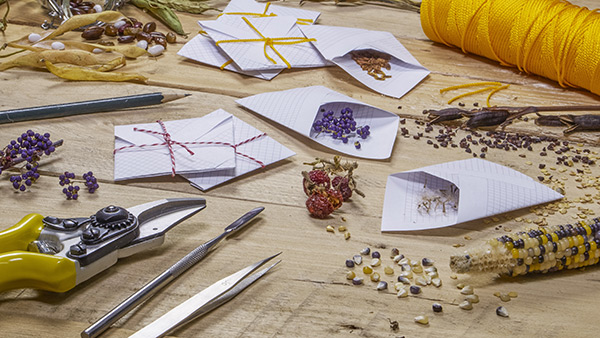
Breaking News
 EXCLUSIVE: "The HUGE Elephant In The Room Is Actually What Jeffrey Epstein Was Best At..."
EXCLUSIVE: "The HUGE Elephant In The Room Is Actually What Jeffrey Epstein Was Best At..."
 EXCLUSIVE INTERVIEW: Republican Candidate For Texas Governor "Doc" Pete Chambers Joins...
EXCLUSIVE INTERVIEW: Republican Candidate For Texas Governor "Doc" Pete Chambers Joins...
 Epstein Files Trigger Political Fallout Across Europe
Epstein Files Trigger Political Fallout Across Europe
 Conjoined twin 'influencers' who have gained more than 280,000 followers with their intimate
Conjoined twin 'influencers' who have gained more than 280,000 followers with their intimate
Top Tech News
 How underwater 3D printing could soon transform maritime construction
How underwater 3D printing could soon transform maritime construction
 Smart soldering iron packs a camera to show you what you're doing
Smart soldering iron packs a camera to show you what you're doing
 Look, no hands: Flying umbrella follows user through the rain
Look, no hands: Flying umbrella follows user through the rain
 Critical Linux Warning: 800,000 Devices Are EXPOSED
Critical Linux Warning: 800,000 Devices Are EXPOSED
 'Brave New World': IVF Company's Eugenics Tool Lets Couples Pick 'Best' Baby, Di
'Brave New World': IVF Company's Eugenics Tool Lets Couples Pick 'Best' Baby, Di
 The smartphone just fired a warning shot at the camera industry.
The smartphone just fired a warning shot at the camera industry.
 A revolutionary breakthrough in dental science is changing how we fight tooth decay
A revolutionary breakthrough in dental science is changing how we fight tooth decay
 Docan Energy "Panda": 32kWh for $2,530!
Docan Energy "Panda": 32kWh for $2,530!
 Rugged phone with multi-day battery life doubles as a 1080p projector
Rugged phone with multi-day battery life doubles as a 1080p projector
 4 Sisters Invent Electric Tractor with Mom and Dad and it's Selling in 5 Countries
4 Sisters Invent Electric Tractor with Mom and Dad and it's Selling in 5 Countries
Home gardening tips: For how long can you store vegetable seeds?

(Natural News) Growing your own food gives you access to fresh fruits and vegetables – something that is invaluable post-SHTF.
Knowing how to store seeds properly ensures that you're always ready for the next planting season. To the untrained eye, dry and brittle seeds may seem useless. However, gardeners know that vegetable seeds are key to starting and maintaining a bountiful garden. (h/t to GardenerThumb.com)
Seed germination rates
If you're not sure where to start, check out this chart of how long vegetable seeds last.
Asparagus (can remain viable for three to five years) – 50 percent germination for five years. Commercial seeds must be at least 75 percent viable.
Beans (can remain viable for three years) – 50 percent germination for three years. Commercial seeds must be at least 80 percent viable.
Brussels sprouts (can remain viable for four years) – 50 percent germination for five years. Commercial seeds must be at least 75 percent viable.
Carrots (can remain viable for three years) – Germination rates decline after three years. Commercial seeds must be at least 55 percent viable.
Corn (can remain viable for three years) – 50 percent germination for three years. Commercial seeds must be at least 75 percent viable.
Dill (can remain viable for four to five years) – 50 percent germination for five years.
Eggplant (can remain viable for five to seven years) – 50 percent germination for five years. Commercial seeds must be at least 60 percent viable
Lettuce (can remain viable for five years) – 50 percent germination for five years. Commercial seeds must be at least 75 percent viable.
Onion (can remain viable for one to two years) – 50 percent germination for two years. Commercial seeds must be at least 70 percent viable.
Pumpkin (can remain viable for four to six years) –50 percent germination for six years. Commercial seeds must be at least 75 percent viable
Radish (can remain viable for five years) – 50 percent germination for five years. Commercial seeds must be at least 75 percent viable.
Squash (can remain viable for four to six years) – 50 percent germination for six years. Commercial seeds must be at least 75 percent viable.
Tomatoes (can remain viable for four to 10 years) – Commercial seeds must be at least 75 percent viable.
Zucchini (can remain viable for four to six years) – 50 percent germination for six years. Commercial seeds must be at least 75 percent viable
Seed storage methods
Storing seeds properly ensures that you have good samples when testing for viability.
Drying
When gathering seeds from your own crops, spread the seeds on a newspaper and let them air dry for one week. Label the seeds so you don't get confused while drying. (Related: A crash course in intensive gardening.)
Once the seeds are dry, pack the seeds into small envelopes or paper packets. Label each envelope or packet with the plant name and other details.
Alternatively, you can dry saved seeds on paper towels. The seeds will stick to the towels when dry. Roll paper towels with seeds tightly before storing them. When it's planting season, tear off bits of the towel one seed at a time then plant the seed and towel right in the soil.
When saving your own seeds, plant open-pollinated varieties because they will come back true while hybrids won't.



